FORMER
OPCW OFFICIAL: NO CONCLUSIVE PROOF OF RUSSIAN COMPLICITY IN SALISBURY
ATTACK
Nafeez
Ahmed
Via
Hal
Turner,
25
March, 2018
The
US and its European allies have coordinated the largest collective
expulsion of Russian diplomats in history. Russia has promised to
retaliate in kind. Yet despite the sense of certainty around Russian
culpability in the Salisbury incident, questions remain around the
state of the available evidence.
As
contradictory narratives proliferate amidst conflicting Western and
Russian government statements and media reports, a clearer picture of
the secret history of the nerve agent used in the Salisbury
poisonings is emerging.
In
an exclusive interview with INSURGE, a former senior official at the
Organization for the Prohibition of Chemical Weapons (OPCW) from 1993
to 2006, Dr Ralf Trapp, said that at this stage there is no
conclusive evidence that Russia was the source of the nerve agent
used in Salisbury. He pointed to compelling evidence that Russia did
run a secret research programme to create Novichok-type nerve
agents — and strongly criticised Russia’s denials of that
programme. While justifying grounds for suspicion, there is as yet no
decisive proof that Russia retained such a Novichok programme or
capability today, he said.
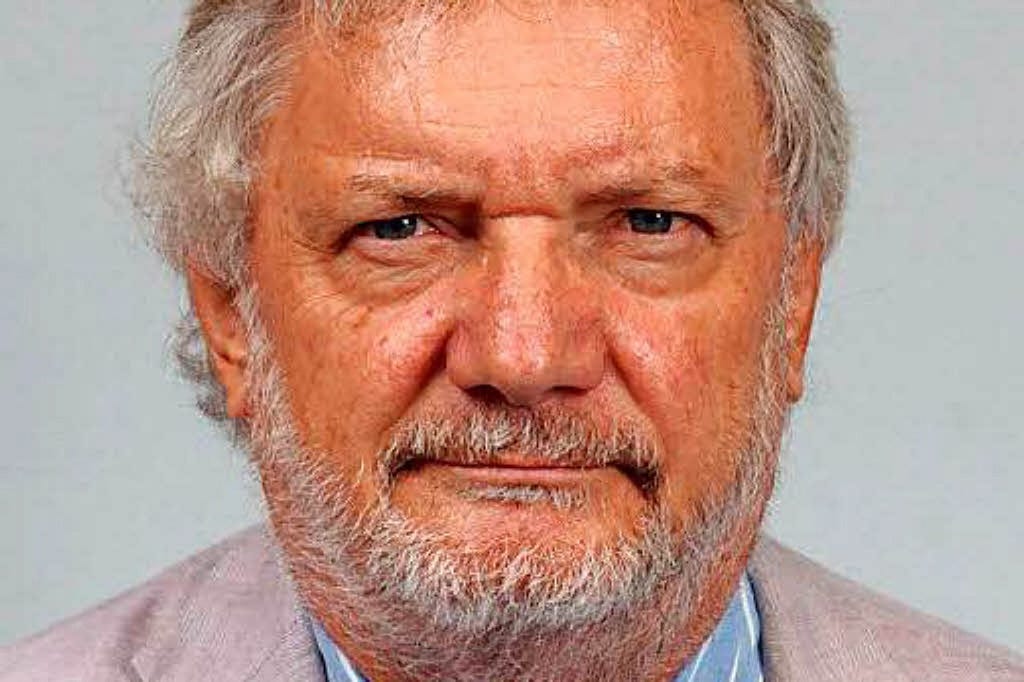
Dr
Ralf Trapp is former Secretary of the Scientific Advisory Board of
the Organization for the Prohibition of Chemical Weapons
Inour previous story, INSURGE raised a range of questions and problems
with the British government’s approach to the crisis. Dr. Trapp’s
interview resolves some of these issues while raising new and
alarming questions.
His
insights are likely to be damaging to both the Russian and British
government positions. The British government has insisted that its
identification of the nerve agent points squarely and inevitably to
Russia alone, even as Russian officials have insisted they have never
run a programme to create what the UK had identified as ‘Novichok’.
Both
these claims are flawed.
‘NO
DATA’ PROVING A RUSSIAN NOVICHOK CAPABILITY
On
the one hand, Dr Trapp dismissed Russia’s ongoing official denials
of any involvement in a Novichok-type nerve agent research programme.
These denials, he said, are inconsistent with Russian government past
positions and credible statements by Russian scientists involved with
the programme.
On
the other, Dr Trapp pointed out that the existence of a Novichok
programme in Russia has never been technically “corroborated”,
and confirmed that numerous Western states will have “re-engineered”
the nerve agent for defensive research purposes.
Asked
whether Prime Minister Theresa May’s claim that the chemical
identification of Novichok in Salisbury can only lead to two
possibilities, both revolving around Russian culpabability, Dr. Trapp
conceded: “No there are other theoretical possibilities”
before suggesting that “it would depend on what else the UK knows
and has not yet made public.”
He
added that he “can’t immediately see motive or opportunity” for
other parties, “except for the UK as suggested by Russia” — a
notion which, he emphasised, “I don’t consider credible at all.”
According
to Dr Trapp, the name of the secret Russian nerve agent programme in
question was ‘Foliant’, and there may have been similar
programmes run by the FSB, Russia’s domestic service service.
“I
have no information about whether Russia continued the programme
after the mid-1990s,” said Trapp, “but would not exclude the
possibility that small amounts of what could be ‘explained away’
as materials needed in protective research have been retained or
newly synthesized. But again — no actual data on this.”
The
lack of “actual data” for the British government’s case has
been most prominently criticised by Craig Murray, previously a UK
ambassador to Uzbekistan and former career Foreign Office (FCO)
diplomat.
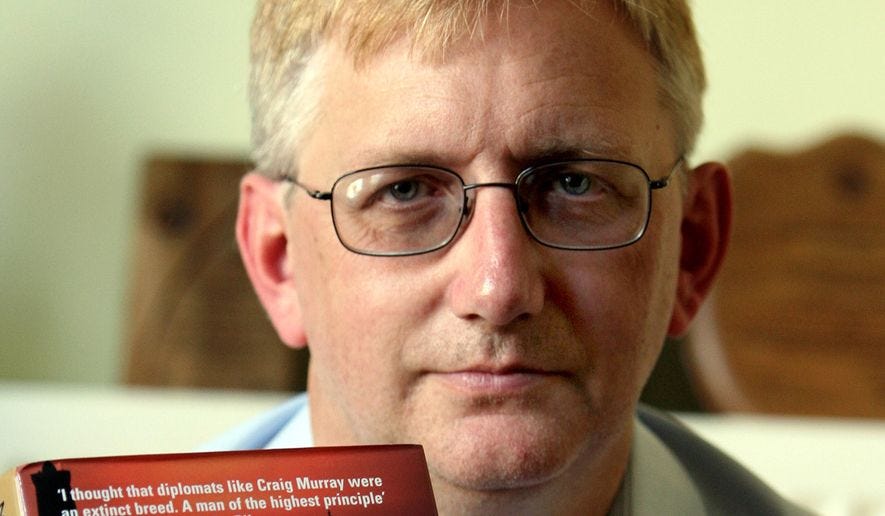
Craig
Murray, former UK Ambassador to Uzbekistan
Murray
revealed, citing his own FCO sources, that the government was using a
consistent phrase to describe the nerve agent identified in
Salisbury — “of a type developed by Russia”. This peculiar
choice of phrase, he said, was because although the chemical
structure may be the same as the type of nerve agent originally
developed by Russia decades ago, there was no proof that the agent
used in Salisbury had actually been manufactured inside Russia –
leaving the possibility open that other parties may have been
involved.
RUSSIA
DID RUN A SECRET NERVE AGENT PROGRAMME, BUT IT WASN’T CALLED
‘NOVICHOK’
That
phrase carefully decided on by the FCO — “of a type developed
by Russia” — has been replicated not only by the UK but by
its allies in official statement after official statement. For
Murray, this illustrates a concerted PR offensive to conceal the lack
of chemical evidence that the nerve agent was created by Russia.
Though
the British government appears to be obfuscating the degree of
uncertainty that remains on this issue, the Russian government has
also been decidedly economical with the truth.
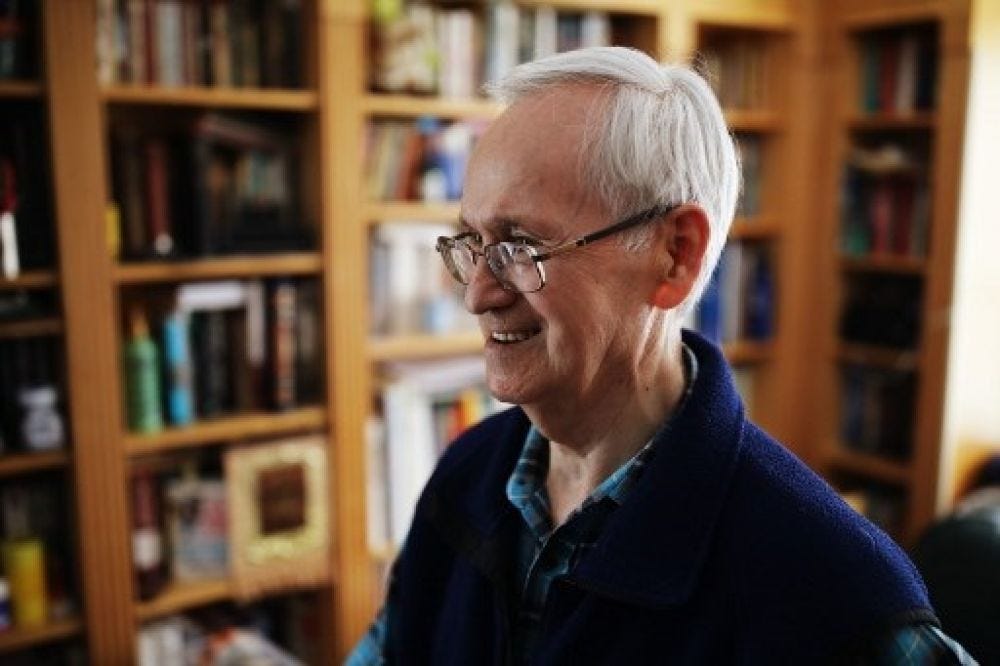
Dr.
Vil Mirzayanov, former Russian chemist and ‘Novichok’
whistleblower
The
‘Novichok’ programme was first revealed in 1992 by Dr. Vil
Mirzayanov, a former chemist at the State Union Scientific Research
Institute of Organic Chemistry and Technology (GSNIIOKhT).
Mirzayanov’s
initial reports on ‘Novichok’ nerve agents concerned the
ecological damage of the Soviet CW programme. He later revealed that
these concerns related to a much wider ranging nerve agent programme.
Some
of his claims have been recently corroborated to Russian state media
by Professor Leonard Rink, a Russian chemist who admitted that he ran
the programme in its later stages.
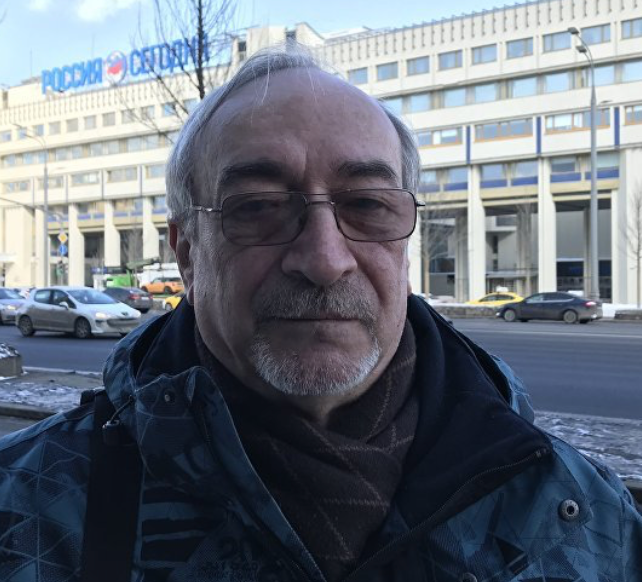
Prof.
Leonard Rink, retired Russian chemist and former ‘Novichok’
developer
When
asked whether he was involved with creating “what the British
authorities call ‘Novichok’”, Rink replied: “Yes. This was
the basis of my doctoral dissertation.” He confirmed that a large
group of specialists in Shikhany and Moscow worked on the programme
for years before they “finally achieved very good results.”
However,
Professor Rink denied that there was any programme for the creation
of chemical weapons called ‘Novichok’:
“Programmes
for the development of chemical munitions existed, but not with this
name. After any program was completed, it was handed over to the
military, and they already had decided the name… There was no such
separately taken substance called ‘Novichok’ and there was no
development project with this name. Rather this was simply a system
of coding and registration. It is therefore absurd to talk about the
formula for ‘Novichok’ under a project of the same name.”
Rink
confirmed that Mirzayanov had knowledge of the secretive Russian
nerve agent programme, but denied that he was involved in creating
it.
Rink’s
assertion that Mirzayanov had no role in actually creating the nerve
agent casts some of his claims into doubt, as Mirzayanov has
repeatedly told various news agencies that he was directly involved
in the relevant experiments.
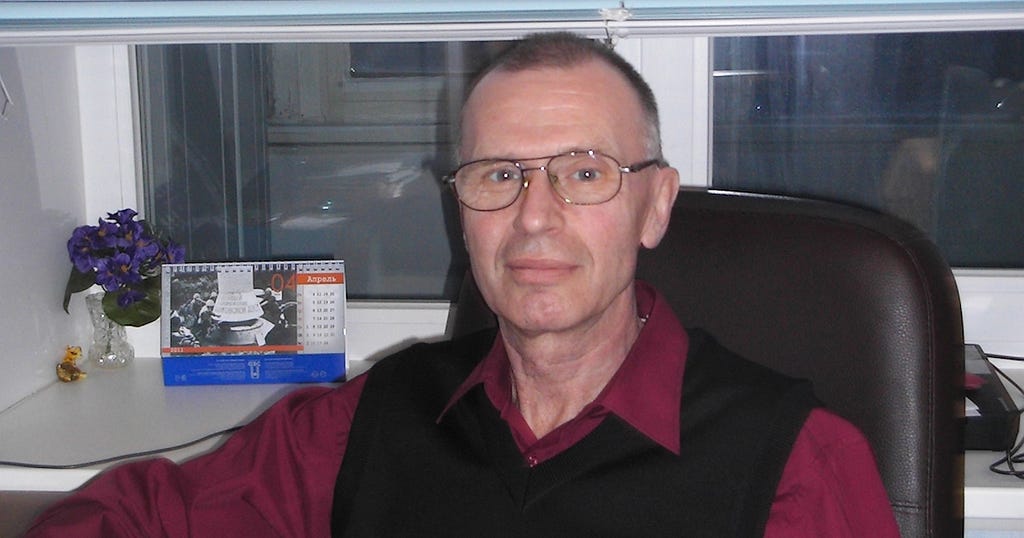
Dr.
Vladimir Uglev, retired Russian chemist and former ‘Novichok’
developer
Another
Russian scientist, Vladimir Uglev, who also led on the nerve agent
programme at GSNIIOKhT, criticized the OPCW in an interview with The
Bell for failing to take action on their reports to the agency about
the Russian nerve agent programme:
“Why
did the Organization for the Prohibition of Chemical Weapons (OPCW)
under the United Nations, if one finds their minutes from their
meetings to be true, fail three times to find proof of production of
this agent (searches began after the publication of Mirzayanov’s
book in 2008)?
–" It’s
impossible to find a black button in a dark room. Moreover, the cat
simply wasn’t there, because there wasn’t any production in the
USSR, and Russia then was preoccupied with other things. The fact
that the OPCW totally ignored our mutual statement with Mirzayanov in
1993 about the existence of agents of chemical warfare in Russia was
a gross violation of the (Chemical Weapons) Convention, as signatory
countries to the Convention are required to report the development of
new substances, the most powerful of which are agents of chemical
warfare.”
According
to the Clingandael Institute, the US did not address its concerns
about Russia’s undeclared Novichok capability through the OPCW:
“The US decided to address these concerns through bilateral
channels, rather than directly engaging formal OPCW mechanisms.”
(p. 19)
OTHER
STATES HAVE ‘RE-ENGINEERED’ NOVICHOK AGENTS FOR LEGITIMATE
RESEARCH PURPOSES
Dr.
Trapp’s analysis throws further light on the murky details of what
Russian and Western governments know about the nerve agent that was
used on Sergei and Yulia Skripal. His last post at the OPCW was
Secretary of its Scientific Advisory Board. Since 2006, he has been a
consultant on disarmament of chemical and biological weapons for the
European Commission and several UN agencies.
Dr.
Trapp confirmed that at least some Western countries “would have
done their own research to be able to characterise these chemicals
and be able to identify them by chemical analysis should they ever be
used. That is perfectly legitimate under the CWC, which allows, for
good reasons, countries to continue work in chemical protection, to
acquire, synthesise and investigate toxic and precursor chemicals to
this end, and to work on such issues as detection, identification,
protection and medical countermeasures, decontamination and other
technical aspects of protection.”
Asked
if Mirzayanov’s claims had ever been corroborated, Trapp said that
they had been “verified in a legal sense: not corroborated.”
Referring
to Russian efforts to prosecute Mirzayanov for divulging state
secrets when he first criticised the Soviet CW programme, Trapp added
that:
“As
the original affair in Russia to an extent was played out in public,
Western secret services will surely have picked up on that at the
time, and some labs will have worked on ‘re-engineering’ these
types of chemicals to see whether the claims could be true and to
have data on these agents in their reference libraries.”
Dr
Trapp explained that the primary reason the OPCW does not hold any
information on Novichok is because it has not been declared by any
state party under the CWC, largely due to fears about proliferation
risks:
“It
is my understanding that Novichoks have indeed not been declared
as part of a CW stockpile or past CW production programme by any
state party,” he said.
“Assuming
that the declarations essentially have been complete and honest, that
would mean that no chemical weapons using Novichoks have been
stockpiled by any state party when they became members of the OPCW.
The Novichok issue came up several times in the OPCW Scientific
Advisory Board, as a question of whether these chemicals or their
precursors should be included in the CWC control lists — the
‘Schedules’; however state parties were not ready to include such
chemicals, largely because of concerns about the potential
proliferation risks related to critical CW knowledge leaking into the
public domain and associated risks such as with regard to misuse of
such data by non-state actors or rogue states.”
He
noted that Iran had provided some information on its own Novichok
experiments to the OPCW:
“Some
of the relevant chemicals also came to the fore when Iran submitted
the analytical data of some of these chemicals for validation and
possible inclusion into the OPCW analytical database used in routine
verification.”
An
article in Spectroscopy Now from January 2017 described how Iranian
scientists had “synthesised five ‘Novichok’ agents, along with
four deuterated analogues.” The “detailed mass spectral data”
obtained from these experiments “have been added to the
Organisation for the Prohibition of Chemical Weapons’ Central
Analytical Database (OCAD). It is important that such databases are
as comprehensive as possible so that unusual chemical weapons can be
unambiguously detected.”
CWC
DECLARATION RULES MEAN RUSSIA MIGHT STILL HAVE A NOVICHOK CAPABILITY
Complicating
matters further are rules around declaring chemical weapons. Last
year, the OPCW declared that it had verified the complete destruction
of Russia’s chemical weapons programmes.
But
Russia’s failure to declare its ‘Foliant’ programme, under
which the nerve agents called ‘Novichoks’ were researched, raises
questions about whether those programmes were destroyed. As they were
never declared, it is possible that some semblance of them still
exists today. But it is also possible that they were indeed
destroyed, and that today no such programmes or capability exist.
There
is no firm data either way:
“If
these chemicals, the CW agents as well as their precursors, were
actually in a CW stockpile when a state joined the CWC, they were
declarable in great detail. My understanding is there were no Russian
stockpiles of actual Novichok weapons in 1998.When a state had
produced them, agent or precursors, as chemical weapons in the past,
the respective production facilities, too, are declarable (including
the chemicals and amounts produced) — Russia did not declare
such facilities but it is likely they considered them part of the
development programme. If these chemicals had been part of a CW
development programme, on the other hand, the facilities,
laboratories, test ranges etc. used ‘primarily’ for the
development of such chemical weapons also must be declared, but the
requirements are less stringently defined in the CWC — ‘primarily’
is open to interpretation and states have never been able to agree on
a common understanding of how this term should be interpreted. There
is no rigid format for whether or not the chemicals under development
and chemical processes involved in their manufacturing needed to be
declared. All that is legally required is a description of the
‘location, nature and general scope of activities’ of the
facility. States parties have taken very different views on how
transparent they should be under this formula and my understanding is
that Russia did not include details on its novichok development work
in its declaration of former CW development facilities.”
Dr.
Trapp suggested, therefore, that while Russia’s official denials
about the Novichok programme may well be technically correct, they
are misleading because Russia privately admitted to running its nerve
agent research in bilateral communications with the US:
“As
for Russia, I would take their statements very literally, exactly as
they have been put on record. Russia, true, has never publically
admitted it had worked on these chemicals as part of its CW
programme. The programme was not called ‘Novichoks’ — its
code name was ‘foliant’ — and the Novichok term for the
chemicals of interest probably had no formal standing — the
agents had codenames.”
Bilateral
meetings between the US and Russia did provide confirmation of the
programme, however, in the context of the Wyoming Agreement and the
Bilateral Destruction Agreement. The latter “never entered into
force but the data exchanges and some site visits and clarification
meetings were conducted between the two countries,” said Dr Trapp.
“In
those discussions, the Russians never disputed the factual claims by
Mirzayanov, including the research and development work on Novichoks,
the agents involved etc. They merely disagreed with the US
interpretation as to what, if any, of this would be declarable under
the agreed rules of data exchange, which also were reflected in the
rules of the CWC declaration system and ambiguities regarding what
needed to be declared under development of CW.”
OPCW
WILL INVESTIGATE NERVE AGENT USED IN SALISBURY
While
Russia’s reticence on its ‘Foliant’ research programme
vindicates suspicions of its role in the Salisbury attack, there is
no firm evidence yet that the agent used proves Russia’s
culpability. The OPCW may, however, be able to provide independent
confirmation of the agent and its origin of manufacture:
“What
is going on at the moment is a mission under a more general mandate
of OPCW to provide technical assistance and evaluation support to the
UK… Whatever comes out of this work will be technical in nature, it
will certainly confirm the agent used, and there may be forensic
information that may help establish what method of synthesis had been
used, how the material was administered or disseminated, and what
kind of chemical signatures there are that would allow to establish
the composition of the tactical mixture used — that is,
chemicals used to formulate the agent into tactical mixtures — e.g.
stabilisers, chemicals that modify/moderate certain physical
properties etc. If the OPCW, or the UK, would have access to the raw
materials used in a suspected lab, they also would be able to
establish whether or not the agent came from those specific raw
materials, based on characteristic signatures such as certain
impurities, or the stable isotope ratio of certain chemical elements
of the agents themselves. This can be done down to the individual
batch of chemical synthesis or raw material used.”
After
the British government accused Russia of involvement in the Salisbury
attack, the Russian government requested a sample of the agent used.
This would have allowed the Russians to conduct its own such tests
and, potentially, publish the findings. The UK, however, declined to
provide a sample.
Leonard
Rink, one of the Russian scientists who confirmed the existence of
the ‘Foliant’ programme contrary to official Russian denials, has
argued that the UK’s refusal to provide the sample suggests it does
not exclusively point to Russian origin:
“For
any country with weapons of mass destruction — the UK, the US,
China and all developed countries — any country with at least
some chemistry would have zero problems creating this kind of weapon.
Why aren’t the British providing a sample to Moscow? Because no
matter how hard [British] specialists try, a technology will always
differ somewhat. This is its unique signature. It will be immediately
clear that it is not a Russian-made technology.”
In
summary, Dr Trapp’s interview unearths compelling evidence that
Russia was indeed working on a CW programme, identified by Mirzayanov
as ‘Novichok’, but not formally identified internally by that
name. This raises legitimate questions regarding Russia’s
declaration obligations under the CWC, whose import is heightened in
light of Russia’s blanket denials. In the past, Russia claimed to
have destroyed its past Novichok-capability. Trapp’s information
shows that while Russia may well have retained a Novichok-capability
which it refused to declare, there is as yet no direct evidence of
this. And yet, while we should be wary of Russian disinformation,
Trapp’s comments also reinforce questions as to why the British
government is asserting absolute certainty on Russian culpability,
citing scientific evidence about the nerve agent used in
Salisbury — when that evidence is technically compatible with
other scenarios.
All
this leaves more questions than answers, but perhaps the most
pertinent is this: In the absence of such evidence, is it wise for
the West to rapidly escalate diplomatic tensions with Russia?
Dr.
Nafeez Ahmed is the founding editor of INSURGE intelligence. Nafeez
is a 16-year investigative journalist, formerly of The Guardian where
he reported on the geopolitics of social, economic and environmental
crises. Nafeez reports on ‘global system change’ for VICE’s
Motherboard, and on regional geopolitics for Middle East Eye. He has
bylines in The Independent on Sunday, The Independent, The Scotsman,
Sydney Morning Herald, The Age, Foreign Policy, The Atlantic, Quartz,
New York Observer, The New Statesman, Prospect, Le Monde
diplomatique, among other places. He has twice won the Project
Censored Award for his investigative reporting; twice been featured
in the Evening Standard’s top 1,000 list of most influential
Londoners; and won the Naples Prize, Italy’s most prestigious
literary award created by the President of the Republic. Nafeez is
also a widely-published and cited interdisciplinary academic applying
complex systems analysis to ecological and political violence




No comments:
Post a Comment
Note: only a member of this blog may post a comment.